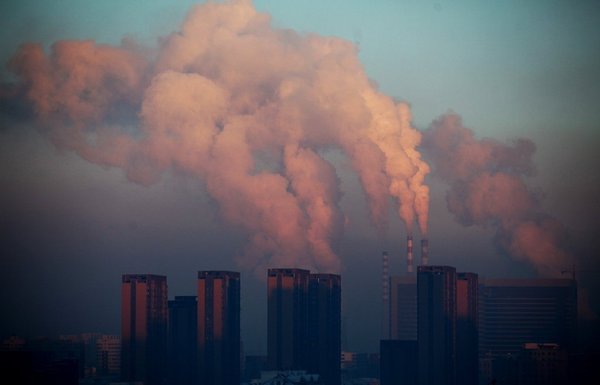30 May 2013
By Rory Tingle
Originally published via Palatinate Online
Concentrations of carbon dioxide in the earth’s atmosphere have reached 400 parts per million (ppm) for the first time in human history, according to readings from the US government observatory in Hawaii.
The last time this amount of greenhouse gas was in the air was three to five million years ago, when sea levels were forty meters higher than today and the Arctic was ice free. Similar conditions are expected to return in time – with devastating consequences for human civilisation – unless CO₂ emissions are rapidly curtailed.
“It symbolises that so far we have failed miserably in tackling this problem,” said Peter Tans, who runs the Mauna Loa observatory which recently reported the reading.
The 400 ppm level may reduce slightly as the northern hemisphere enters the growing season, but this level is expected to be consistently surpassed in the coming years.
Scientists have used the news to urge world leaders to take urgent measures to combat global warming. Sir Brian Hoskins, a leading climatologist from Imperial College London, said the figure should “jolt governments into action”.
Scientists have long argued that carbon dioxide concentrations must be pushed back to 350 ppm to avoid a catastrophic 2°C rise in temperatures, as the 350.org campaign demands. A rapid transition away from fossil fuels would be needed to achieve this, with oceans and forests absorbing excess carbon dioxide to bring concentrations back down to a safe level.
Edward Davey, the Secretary of State for Energy and Climate Change also used this opportunity to hit back at climate change sceptics, saying: “This isn’t just a symbolic milestone, it’s yet another piece of clear scientific evidence of the effect human activity is having on our planet”.
The news comes several weeks after the European Parliament voted against a plan to undertake vital reforms to the Emissions Trading Scheme.
Bob Ward, policy director on climate change at the London School of Economics reflected: “We are creating a prehistoric climate in which human societies will face huge and potentially catastrophic risks. Only by urgently reducing global emissions will we be able to avoid the full consequences of turning back the climate clock by 3 million years”.


